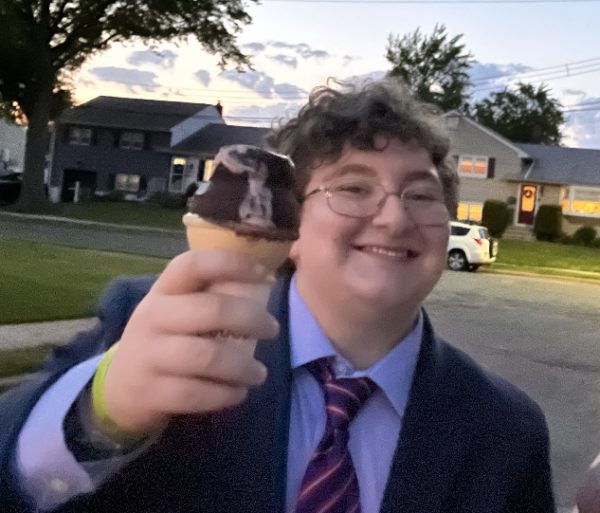After receiving an undergraduate degree, many Carleton graduates pursue further education. Whether they go on to a professional program like law school or medical school, or attend master’s or PhD programs to prepare for a future in academia, Carleton students tend to not stop at a bachelor’s degree. As Carleton students further their education in a variety of fields, there are certain places where Carls are abundant.
One such institution is Harvard Divinity School (HDS), which offers a selection of master’s programs in the study of theology and divinity and has helped Carleton alumni become professors, ministers and researchers — including our chaplain, Schuyler Vogel ’07.
Given that religion is a less popular area of graduate study compared to other programs, it begs the question: Why do so many Carleton students attend HDS?
On Tuesday, September 26, HDS alumnus and Director of Admissions Odeviz Soto came to Carleton to host an information session about the school’s programs and field questions from students. Students from both Carleton and St. Olaf attended, as well as Vogel and Muslim chaplain Ailya Vajid — another HDS alumnus.
During the session, Soto gave a brief introduction to the programs offered at HDS, which include Master of Theological Studies (MTS) and Master of Divinity (MDiv), as well as the Master of Theology (ThM) and Master of Religion and Public Life (MRPL), which are both intended for graduated professionals who want to go back to school to study religion.
Another hallmark of the presentation was the diversity of HDS’s students and staff. Unlike many other divinity schools, HDS is non-sectarian, meaning they do not conform to any religious tradition. HDS’s non-sectarian structure and diversity makes it the most religiously pluralistic divinity school in the world, representing over 45 religious traditions. The 2023 incoming class alone practices 35 religions, speaks 49 languages, and has students ranging from age 20 to 71— ten percent of whom identify with a gender that isn’t male or female.
Of the 113 undergraduate institutions represented in the HDS incoming class, Soto made sure to clarify that Carleton students made up a disproportionate amount of the population. So the question remains: Why is HDS so popular among Carleton students?
One reason why HDS is a preferred choice of study for Carleton alumni is Carleton’s own religion department. Karina Yum ’23, a recent Carleton graduate and first-year at HDS, said, “I’m realizing just how well Carleton prepared me as a scholar and researcher. I’m already pretty familiar with the scholars I’m reading in my HDS classes, as well as the ideas we’re discussing. A few times, I’ve actually been assigned readings I previously did at Carleton.”
Vogel said, “The religion department is objectively phenomenal and one of the best religion departments in the country, which is something that Carleton doesn’t necessarily trumpet from the rooftops but is very true.” He added that “it helps with getting into places like HDS because they know you have had a very strong study of religion that cuts across different religious traditions.”
Reverend Reebee Kavich Girash ’96, another Carleton HDS graduate, says, “The Bible that I bought for Introduction to the Bible is still the study Bible that I use in my church. Every Tuesday morning for Bible study, I use the Bible I bought for my class at Carleton.”
Carleton’s opportunities for involvement in religious life also helped alumni choose HDS and is a common thread between the two schools. Vogel said that Carleton is different from other colleges in that “we have a chapel that is pretty significant in the college community in the way that similar communities do not have.” According to Girash, involvement in the chapel community can help students who are interested in the practice of religion. She said “now, students at Carleton who are thinking about ministry are even better prepared, specifically from the opportunities they have within the chaplaincy,” and that two of the three Carleton alumni she has spoken to were chaplain’s associates.
The immense opportunities available to Carleton students in both the study and practice of religion, as well as the abundance of HDS alumni currently working at Carleton, contribute to the relationship between Carleton and HDS.
Yum adds that “Because the pipeline is so strong, Carleton has a really fantastic reputation [at HDS].”
On the whole, there are several reasons why the path from Carleton to HDS was forged. But one of the reasons it is so popular is because Carleton and HDS students are similar and desire some of the same things.
“HDS, like Carleton, is a deeply pluralistic place that values diversity, and it challenges its students and community to challenge the boundaries of who matters and whose stories are and are not being told,” Vogel said. “I think there is a natural fit and synergy between these two institutions in that Carleton people and HDS people are generally sincere, thoughtful, studious, well-intentioned and unsatisfied with living a non-reflective, holistic life.”












